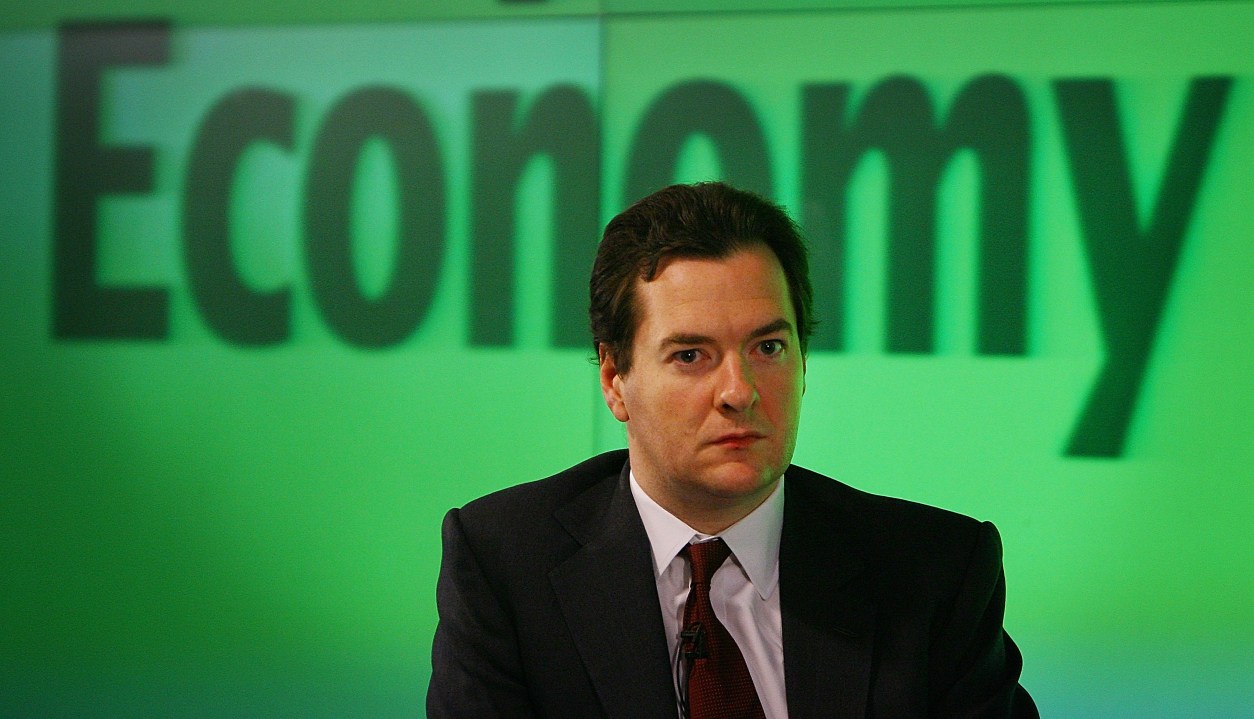 The debate about taxes was successfully closed down by Gordon Brown when he persuaded the Tories to equate tax cuts with instability. Actually, even Brown didn’t go this far – this “instability” point was Oliver Letwin’s. Even now, when the disastrous effects of Brown’s economic policy are painfully clear, it’s still hard to get a debate going about an alternative approach. So it was with much excitement that I picked up Art Laffer’s latest book in New York last week – the sort of title you just don’t see in Britain. “The End of Prosperity: How Higher Taxes Will Doom the Economy — If We Let it Happen”. He gives a taste of it in a WSJ article today, and makes a crucial case which the Tories should be making here: that state intervention will do more harm than good in the long term. As he says
The debate about taxes was successfully closed down by Gordon Brown when he persuaded the Tories to equate tax cuts with instability. Actually, even Brown didn’t go this far – this “instability” point was Oliver Letwin’s. Even now, when the disastrous effects of Brown’s economic policy are painfully clear, it’s still hard to get a debate going about an alternative approach. So it was with much excitement that I picked up Art Laffer’s latest book in New York last week – the sort of title you just don’t see in Britain. “The End of Prosperity: How Higher Taxes Will Doom the Economy — If We Let it Happen”. He gives a taste of it in a WSJ article today, and makes a crucial case which the Tories should be making here: that state intervention will do more harm than good in the long term. As he says
“Whenever the government bails someone out of trouble, they always put someone into trouble, plus of course a toll for the troll. Every $100 billion in bailout requires at least $130 billion in taxes, where the $30 billion extra is the cost of getting government involved.”
This is dynamic modelling – and it is a weapon the Tories need to use very quickly. Brown’s static model, which at present the Tories accept, is that if you cut £1 billion from tax then government revenue will fall by £1bn. This is used by the Treasury and justifies lots of damaging tax raids, as policymakers are not advised about the wider benefits the tax cut could cause. A £1bn tax cut would lead to greater economic activity so the real “cost” to HM Treasury would be far less. There are several well-established econometric models which can be used to do this. They’d also work out how many extra jobs would be created by a tax cut, and how many jobs lost by tax rises – metrics which should be gold dust to the Tories right now.
Dynamic modelling offers the Tories something they very badly need – a different way of thinking. At a time when Brown is lurching to the left, and saying how important it is that he keeps the government tap on full, they can argue how a tax cut – or, at least, a real terms tax freeze – would deliver the most effective stimulus. If their proposed Office for Budget Responsibility adopted dynamic modelling, it would have a point. But better still to ask HM Treasury to produce dynamic forecasts alongside its static ones. I am open to persuasion, but I still don’t see the point in an OBR other than to have something using the buzzword of “responsibility” (ie. ‘Debt Responsibility Mechanism’ etc).
But words do matter. We are in this mess because Brown renamed spending as “investment” – ergo, a good thing that there should be more of. So it was disconcerting to hear George Osborne repeating the “investment” word on the World At One today. The Tories cannot win this argument while using Brown’s language, stuck within his ideological framework. It was a grave error to concede intellectual defeat to him on tax-and-spend. It was a graver error to coin this “stability before tax cuts” non sequitur.
It was hard for the pre-Cameron Tories to muster enough intellectual self-confidence on economics at a time when the Brown debt avalanche and asset bubble was so widely mistaken for prosperity. There are no such illusions now. And in George Osborne we have someone with the brains, and the nerve, to come up with a new way. He needs to trust his instincts.
Everyone made mistakes in the last 11 years. The Tories’ mistake was to believe that Brown was right on the economy, and to seek to park it as an issue. They need to acknowledge their own errors, move on and finally escape the trap Brown set for them. This means coming out with an approach that rings truer with the electorate and discernibly contradicts Brown. Reading Art Laffer’s new book is a good place to start.
PS Laffer says the markets are passing judgement on Bush’s idea that “Giving more money to people when they fail and taking more money away from people when they work doesn’t increase work.” I’d say the crash in sterling is another comment on Britain’s prospects.
PPS Another source of fresh thinking is Michael Forsyth’S 2006 Tax Reform Commission, choc full of simple and radical ideas. Including the above one. As it said: “The Treasury should establish an official “dynamic” model for the UK economy to encourage greater understanding of the dynamic effect of tax changes on economic growth and tax revenues.”








Comments